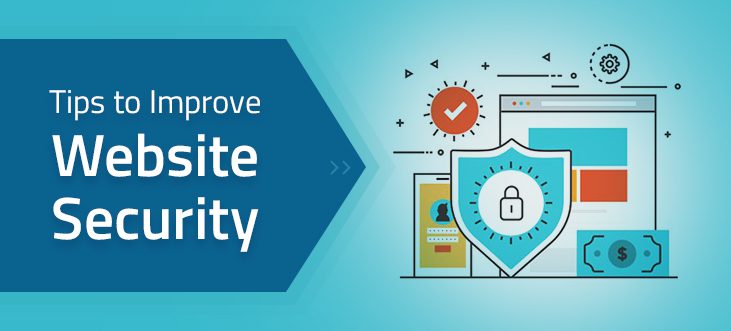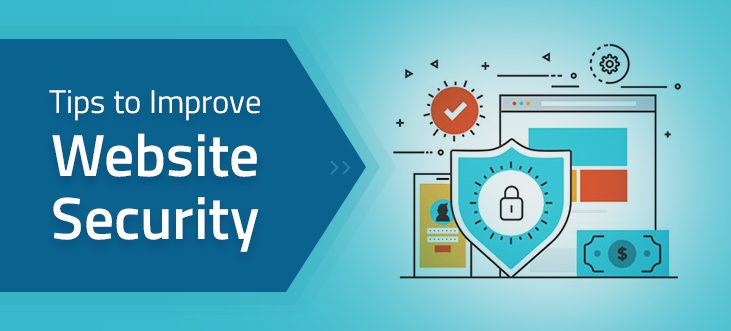As the internet continues to evolve, website security and performance have become a top priority for online businesses. With a plethora of cyber threats lurking around every corner, it’s essential to take measures to protect your website from potential breaches and ensure it runs smoothly. In this post, we’ll explore some essential tips to boost your website’s security and performance.
Firstly, it’s crucial to keep your website updated with the latest security patches and software. Hackers often exploit vulnerabilities in outdated software, leaving your website open to attacks. Regularly updating your website’s software can help prevent such breaches and ensure your website is secure. Additionally, implementing a strong password policy and limiting login attempts can help prevent unauthorized access to your website.
Secondly, website performance is critical for user experience and search engine optimization. Slow loading times can lead to frustrated users and lower search engine rankings. To boost your website’s performance, consider optimizing images, minimizing HTTP requests, and implementing a content delivery network (CDN). These measures can significantly improve your website’s loading speed and provide a better user experience.
By implementing these essential tips, you can boost your website’s security and performance, providing a safer and more enjoyable experience for your users.. You may need to know : Effortlessly Update Your Android Firmware with These Simple Steps
As a website owner, you must prioritize the security and performance of your website. A secure and fast website not only provides a better user experience but also protects your website from hacking attempts and data breaches. Here are five essential tips to boost your website’s security and performance:
Table of Contents
1. Update Software and Plugins Regularly
Software and plugins are essential components of your website that require regular updates. These updates not only improve performance but also address security vulnerabilities. Hackers can exploit outdated software and plugins to gain unauthorized access to your website and steal sensitive data. Therefore, always update your software and plugins to the latest versions to ensure optimal performance and security.
2. Use Strong Passwords and Two-Factor Authentication
Passwords are the first line of defense against unauthorized access to your website. Weak passwords are easy to guess, making your website vulnerable to hacking attempts. Always use strong passwords that contain a combination of upper and lowercase letters, numbers, and special characters. Additionally, implement two-factor authentication to add an extra layer of security to your website.
3. Implement SSL Certificate for Secure Browsing
An SSL certificate encrypts the communication between your website and the user’s browser, ensuring secure browsing. It is essential for websites that collect sensitive data such as login credentials, credit card information, and personal details. An SSL certificate also improves your website’s SEO ranking, as search engines prefer secure websites.
4. Optimize Website Speed and Performance
A fast and responsive website not only provides a better user experience but also improves your website’s SEO ranking. Slow-loading websites lead to high bounce rates, negatively impacting your website’s performance. Therefore, optimize your website’s speed and performance by compressing images, minifying code, and reducing HTTP requests.
5. Backup Data Regularly for Disaster Recovery
Data backup is essential to ensure disaster recovery in case of website crashes, data breaches, or hacking attempts. Always backup your website’s data regularly to a secure offsite location. This ensures that you can quickly recover your website’s data and resume normal operations in case of any unforeseen events.
Frequently Asked Questions
Make sure you’re using the latest version of your website software, including plugins and themes. Outdated software can leave your website vulnerable to security threats and cause performance issues.
2. Use a secure hosting provider
Choose a hosting provider that prioritizes security and offers features like firewalls and malware scanning. A good hosting provider will also have a strong backup system in place in case of a security breach.
3. Use a content delivery network (CDN)
A CDN can improve website performance by caching content and serving it from servers closer to the user, reducing load times. This can also help prevent DDoS attacks.
Now, how can you improve your website’s security and performance without compromising user experience?
1. Use strong passwords
Make sure you and your users are using strong passwords that include a combination of letters, numbers, and symbols. Weak passwords are easy targets for hackers.
2. Implement HTTPS
Using HTTPS encrypts data between the user’s browser and your website, preventing third-party interception of sensitive information. This can also improve your website’s search engine ranking.
3. Use a website firewall
A website firewall can block malicious traffic and prevent attacks like SQL injection and cross-site scripting. It’s an important layer of protection for your website.
Lastly, what are the potential consequences of not prioritizing website security and performance?
1. Loss of data and revenue
A security breach can lead to loss of important data, such as customer information or financial records. It can also result in a loss of revenue if customers lose trust in your website.
2. Damage to reputation
A security breach can damage your reputation and lead to negative publicity. It can be difficult to regain the trust of your customers once it’s been lost.
3. Legal consequences
Depending on the nature of the breach, there may be legal consequences for not properly securing your website. This can result in costly fines and legal fees.
Conclusion
Thanks for visits imagerocket.net for taking the time to read through this comprehensive guide on boosting your website’s security and performance. By implementing the tips and best practices we’ve outlined, you can ensure that your website is protected against malicious attacks and optimized for optimal user experience.
Remember, website security and performance are not one-time fixes, but ongoing processes that require constant attention and updates. Regularly monitoring and maintaining your website’s security and performance will go a long way in keeping your visitors safe and satisfied.
In summary, here are some essential tips to boost your website’s security and performance:
– Use strong passwords and two-factor authentication
– Keep your software and plugins up to date
– Regularly backup your website
– Install SSL certificate for secure connections
– Optimize images and use a content delivery network for faster loading times
– Implement caching and minification for improved performance
– Monitor your website’s traffic and activity for any suspicious behavior
By following these tips, you can take control of your website’s security and performance and provide a seamless user experience for your visitors. Stay vigilant and stay secure!



